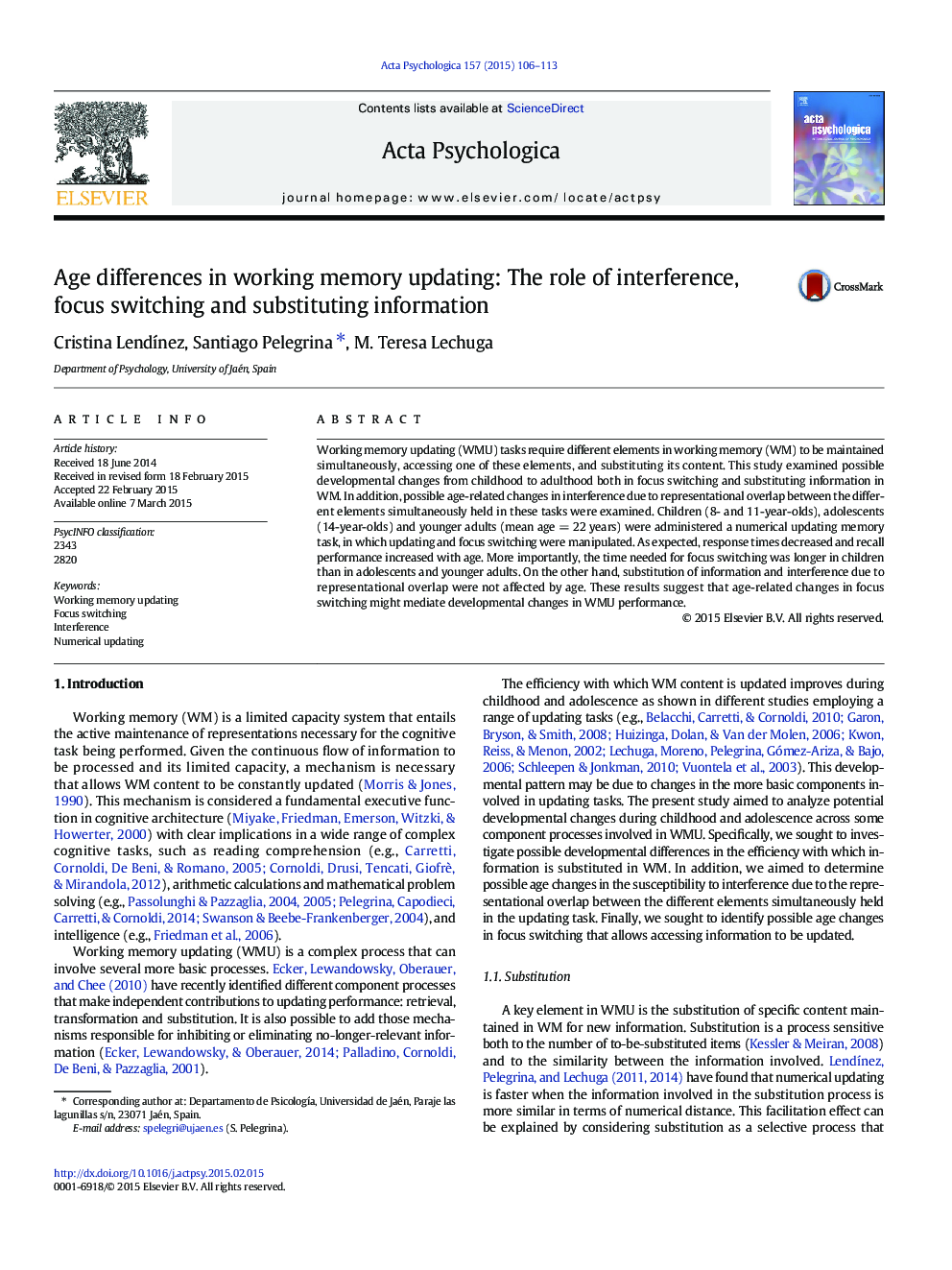| Article ID | Journal | Published Year | Pages | File Type |
|---|---|---|---|---|
| 7277357 | Acta Psychologica | 2015 | 8 Pages |
Abstract
Working memory updating (WMU) tasks require different elements in working memory (WM) to be maintained simultaneously, accessing one of these elements, and substituting its content. This study examined possible developmental changes from childhood to adulthood both in focus switching and substituting information in WM. In addition, possible age-related changes in interference due to representational overlap between the different elements simultaneously held in these tasks were examined. Children (8- and 11-year-olds), adolescents (14-year-olds) and younger adults (mean age = 22 years) were administered a numerical updating memory task, in which updating and focus switching were manipulated. As expected, response times decreased and recall performance increased with age. More importantly, the time needed for focus switching was longer in children than in adolescents and younger adults. On the other hand, substitution of information and interference due to representational overlap were not affected by age. These results suggest that age-related changes in focus switching might mediate developmental changes in WMU performance.
Related Topics
Life Sciences
Neuroscience
Cognitive Neuroscience
Authors
Cristina LendÃnez, Santiago Pelegrina, M. Teresa Lechuga,
